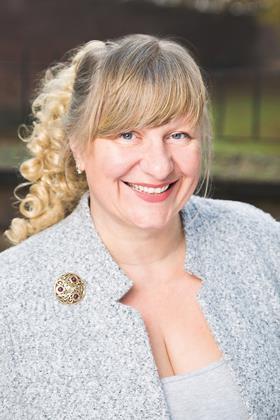Lawyers are a tough breed. Trained to persevere, never admit weakness and handle relentless pressure with an air of quiet authority, the profession prides itself on resilience. But behind the polished exteriors and pressed suits, there is a silent predator stalking many middle-aged male lawyers: hormonal imbalances.

There is much talk about women’s health and, speaking as a miserable middle-aged woman myself, I think that can only be a good thing (shutting up, growing a moustache and becoming (even more) disagreeable is a lifestyle choice rather than a necessity these days). What is noticeable, though, is a lack of discussion about men and their hormones. In fact, I would go as far as to say that it is one of the last taboos.
But while women are reclaiming their health narratives, it seems men are still expected to soldier on in stoic silence, leaving their hormonal health lurking in the shadows like an uninvited guest at a mediation session. While your testosterone is not about to cross-examine you, it might be silently undermining your mental health, energy levels and ability to handle that tricky client with grace. And, no, another coffee will not fix it.
Testosterone gets a bad rap, often associated with bravado or mid-life crises involving red sports cars. But this little hormone is far more nuanced. It is the powerhouse behind energy, focus and emotional stability. When levels drop –something that naturally happens to men as they age – the fallout can be significant. This can include a noticeable lack of drive, extending beyond that one file we all avoid tackling; cognitive fog that leaves even straightforward cases feeling insurmountable; exhaustion that persists no matter how much sleep – or caffeine – you throw at it; and heightened irritability or a lingering sadness that feels as immovable as the most stubborn adversary in court.
For lawyers, whose livelihoods depend on sharp thinking and stamina, these symptoms can feel like a career death sentence. And yet, the profession’s stiff upper lip often turns these struggles into a whisper, not a cry for help.
We are not just talking about the odd off day. The stats paint a troubling picture. Lawyers are three times more likely to suffer from depression and anxiety than the general population. Men aged 45-49 have the highest suicide rates in the UK, at 27.1 per 100,000. One in 15 junior lawyers has experienced suicidal thoughts. This is sobering enough, but consider how those pressures might escalate with the added weight of seniority and responsibility after years in the profession.
Combine these mental health pressures with declining testosterone and you have a potent cocktail. Fatigue, mood swings, and brain fog are often dismissed as ‘just stress’ or ‘burnout’, leaving hormonal imbalances untreated and lives quietly unravelling.
Here is where it gets unfair. Women accessing hormone replacement therapy can now get a prescription prepayment certificate for £19.80 a year, covering all their prescriptions. Men seeking testosterone replacement therapy (TRT) have to fork out the full price for every prescription, often amounting to hundreds of pounds a year.
Yes, gentlemen, your hormones are considered a luxury item. Perhaps the assumption is that men can grit their teeth through anything, even a declining sense of self. Spoiler: you cannot.
First, stop blaming that sinking feeling on too many late nights at the office. Sometimes, the root cause lies deeper – within your biology.
Second, know that there is help out there. For all its bravado, the legal profession is waking up to the importance of mental health.
LawCare offers free, confidential emotional support, provided by people who understand the law’s unique pressures. Whether you are a trainee, a partner or somewhere in between, they have got your back (0800 279 6888/lawcare.org.uk).
The Law Society’s Pastoral Care Helpline provides a listening ear for those who feel the weight of their wig is too much to bear (020 7320 5795).
Many firms offer employee assistance programmes (EAPs), though they are often as underused as that untouched holiday allowance. EAPs include access to mental health professionals and wellness resources, often free of charge.
Also, make an appointment with your GP or a men’s health specialist to check your testosterone levels. Knowledge is power – even if it is not admissible in court.
Let’s face it, vulnerability is not the profession’s favourite topic. But admitting you are struggling is not weakness – it is a step toward resilience. If you are still unconvinced, remember: you would never advise a client to ignore a glaring issue in their case, so why ignore one in your life?
Firms can help by building a culture that prioritises health over appearance. Offering regular health checks, creating spaces for open conversations and normalising discussions around hormonal health are all part of the solution.
Also, advocacy for fair pricing on men’s TRT is long overdue. If women can access affordable hormone treatment, so should men.
The legal profession prides itself on being critical-thinking and just. But there is work to be done when it comes to health, especially hormonal health. Lawyers are the backbone of the rule of law, but that backbone also needs support.
So, if you have been feeling off your game, do not dismiss it. It might not be stress, late nights, or even your least favourite barrister. It might be your hormones calling for a little help.
Take steps to address your health – whether that means seeking medical advice, exploring support systems or simply starting an honest conversation. In a profession that demands so much, maintaining wellbeing is not just a personal responsibility, it is a professional imperative. A sharp mind and resilient body are the cornerstones of effective practice – do not allow silent challenges to compromise them.
Anna Newport is a solicitor and director at Newport Land and Law Limited, Wakefield




























10 Readers' comments